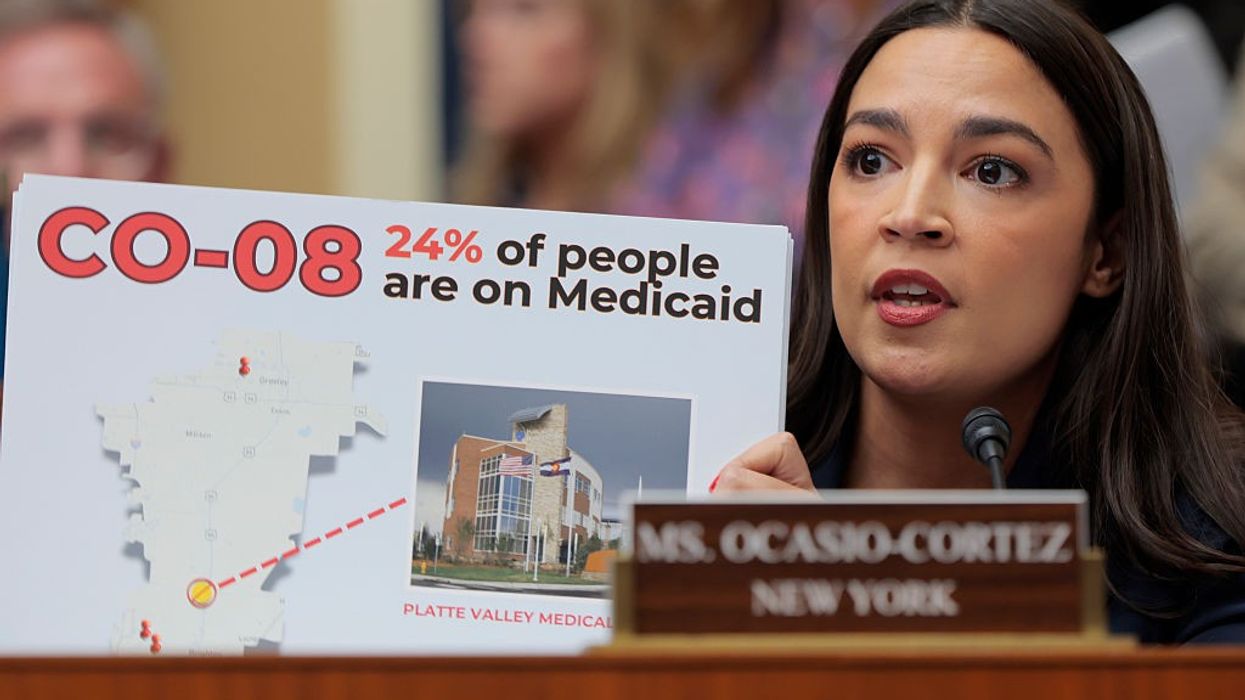May, 13 2022, 02:35pm EDT

For Immediate Release
Contact:
Michael Robinson, Center for Biological Diversity, michaelr@biologicaldiversity.org
Maggie Howell, Wolf Conservation Center, maggie@nywolf.org
Sandy Bahr, Sierra Club, sandy.bahr@sierraclub.org
Mexican Gray Wolf Rule Eliminates Cap on Population, Restricts Killing
New Federal Management Rule Still Falls Short on Genetic Diversity by Rejecting Science-Based Reforms
SILVER CITY, New Mexico
The U.S. Fish and Wildlife Service confirmed today that it will eliminate its current population cap of 325 Mexican gray wolves that are allowed to live in the wild in the Southwest. Today's announcement follows a 2018 legal victory by conservation organizations. In the same decision, the agency rejected science-based reforms that would increase genetic diversity at a faster rate.
"Mexican gray wolves have won a reprieve from a planned massacre, but their hopes to find unrelated mates are being dashed at the same time," said Michael Robinson, a senior conservation advocate at the Center for Biological Diversity. "It's disappointing that the federal government still refuses to replenish the priceless genetic diversity lost through its own mismanagement of these wolves."
A final environmental impact statement justifies the new rule, which temporarily curtails some federal, state and private wolf-killing.
To enhance the wolf population's genetic diversity, the rule has a goal of ensuring that 22 captive-born wolf pups that have been introduced to the wild survive through their second year of life. But there are no requirements that those wolves breed.
"The Fish and Wildlife Service is hinging genetic health to an irrelevant metric," said Maggie Howell, Wolf Conservation Center executive director. "Unless those cross-fostered wolves who survive to breeding age actually reproduce, those animals have zero impact on the wild gene pool. So how are they moving the needle any closer to a genetic objective?"
Further, the Service decided not to resume releasing well-bonded male-female pairs with pups from captivity into the wild as families to increase their chances of survival. Instead, the agency decided to double down on its practice of placing neonatal pups removed from their captive parents into the wild with unrelated wolves.
"Cross-fostering alone will not produce a thriving, recovered, and genetically healthy Mexican gray wolf population," said Sandy Bahr, chapter director for Sierra Club's Grand Canyon (Arizona) Chapter. "The Fish and Wildlife Service has again missed an opportunity to do right by these highly endangered animals and to promote release of well-bonded wolf packs into Arizona and New Mexico."
Only 13 of the 72 cross-fostered pups that have already been released to unrelated wolves are known to be alive today. Just four of these wolves are known to have reproduced, and only six of the offspring, all from just one of those four wolves, are known to be alive. Since the Service started releasing pups without their parents in 2016, inbreeding in the population has increased by 3%.
"The Service admits that they received approximately 82,000 public comments that somehow did not result in substantial changes to their final environmental impact statement," explains Michelle Lute, Ph.D., wolf conservation and national carnivore conservation manager for Project Coyote. "This lack of accountability to the public who supports strong lobo recovery tells you everything you need to know about the Service's leadership on the issue. So much more can and should be done to protect wolves and promote coexistence."
"With the added stressors of accelerating climate change already falling heavily on their Southwest home, Mexican gray wolves don't have time for Fish and Wildlife Service to sidestep the full set of actions needed to recover the lobo," said Kelly Burke, Wild Arizona's executive director. "The wolves are bravely doing their part, but regrettably the Service still needs to get fully onboard."
"Sadly it has become the norm for this program to ignore the best science and public support for actual, robust wolf recovery and instead opt for the minimum," said Chris Smith, southwest wildlife advocate at WildEarth Guardians. "These wolves need real genetic rescue, access to more habitat, and an essential designation. This rule -- while a fractional improvement on the prior attempt -- still fails lobos."
The new rulemaking was prompted by a 2018 court victory by several conservation organizations over the 2015 Mexican wolf-management rule. That 2015 rule stemmed from a 2013 settlement agreement with the Center over failures in the Service's 1998 reintroduction and management rule.
The Fish and Wildlife Service was ordered by the court to release the final wolf management rule by July 1.
Background
The Fish and Wildlife Service and its predecessor agency exterminated gray wolves from the western United States between 1915 and 1945 on behalf of the livestock industry. The government also exported poison to Mexico to enable wolf poisoning there beginning in 1950. The 1973 Endangered Species Act led to the remaining Mexican wolves being captured alive. Seven bred successfully in captivity, and the subspecies was reintroduced in the U.S. in 1998 and Mexico in 2011.
Pups are now being born, including in places that wolves last consistently occupied in the 1920s. Multiple wolves now live in the San Mateo Mountains of west-central New Mexico. A lone female has established a home range west of Albuquerque.
In addition to the 196 wolves counted in the wild in Arizona and New Mexico early this year, approximately 35 wolves live in Sonora, Mexico.
At the Center for Biological Diversity, we believe that the welfare of human beings is deeply linked to nature — to the existence in our world of a vast diversity of wild animals and plants. Because diversity has intrinsic value, and because its loss impoverishes society, we work to secure a future for all species, great and small, hovering on the brink of extinction. We do so through science, law and creative media, with a focus on protecting the lands, waters and climate that species need to survive.
(520) 623-5252LATEST NEWS
House GOP to Skip Town Early for Holiday Recess as Healthcare Premiums Soar, Epstein Files Loom
"The same GOP that voted last summer to give the richest Americans and most profitable companies trillions of dollars in tax cuts somehow can't find the funds this winter to ensure 20 million Americans can afford their health insurance."
Dec 18, 2025
The US House was originally scheduled to be in session on Friday, but the Republican leadership gave members a green light to skip town on Thursday for the two-week holiday recess without voting to prevent massive health insurance premium hikes for tens of millions of Americans.
The decision to let members leave early came after House Democrats secured enough support from swing-district Republicans to force a vote on legislation that would extend Affordable Care Act (ACA) subsidies that are set to expire on December 31, sending premiums soaring.
Democrats on Wednesday demanded an immediate vote on the proposed three-year extension of the ACA tax credits, but Republicans instead pushed to the floor and passed their own healthcare bill that would leave around 100,000 more Americans uninsured per year over the next decade—on top of the millions set to lose coverage due to the expiration of the enhanced subsidies.
The GOP bill is doomed to fail in the narrowly Republican-controlled Senate, which voted down a Democratic push for an extension of the subsidies earlier this month.
More than 20 million Americans relied on the tax credits to afford health insurance. With their expiration, ACA marketplace premiums are set to more than double on average, pricing many people out of coverage entirely.
"Congressional Republicans could have followed through on their promises to help families afford the basics by extending the premium tax credit enhancements to help them enroll in affordable, comprehensive coverage. Instead, they recycled old ideas, refused to address the current affordability crisis—and made plans to go home," Sharon Parrott, president of the Center on Budget and Policy Priorities, said in a statement Wednesday.
"On the brink of this deadline, some Republicans have recognized that the stakes for families are too high to do nothing," Parrott added, pointing to the four GOP lawmakers who signed the discharge petition. "A House bill to extend the premium tax credit enhancements now has the required signatures on its discharge petition to force a vote on the House floor. Republican policymakers should step up and put the needs of individuals and families first."
"If Speaker Johnson refuses to bring forth the vote, he’s telling the American people loud and clear that rising healthcare costs are acceptable to him."
It's unclear when the discharged House Democratic bill will get a vote, as the chamber is not scheduled to return until January 6, 2026—after the ACA tax credits expire.
"If Speaker Johnson refuses to bring forth the vote, he’s telling the American people loud and clear that rising healthcare costs are acceptable to him," said Rep. Jasmine Crockett (D-Texas), who is running to unseat Sen. John Cornyn (R-Texas) in next year's midterm election.
David Kass, executive director of Americans for Tax Fairness, said in a statement Thursday that "instead of siding with millions of everyday Americans, they voted to increase healthcare costs which will now put affordable coverage out of reach for millions."
"Congressional Republicans once again revealed whose side they're on," said Kass. "The same GOP that voted last summer to give the richest Americans and most profitable companies trillions of dollars in tax cuts somehow can't find the funds this winter to ensure 20 million Americans can afford their health insurance."
The House Republican leadership's decision to start the holiday recess also came ahead of the Friday deadline for the Trump administration to release most of the Epstein files, as required by recently enacted legislation.
"View all political developments for the rest of the week in light of the fact that the Epstein files are supposed to be released on Friday," said Rep. Alexandria Ocasio-Cortez (D-NY). "House Republicans just suddenly cancelled congressional session Friday and are sending everyone home Thursday evening."
Keep ReadingShow Less
63% of US Voters Oppose Attack on Venezuela as Trump's March to War Accelerates
The new poll comes as the US president openly plots to seize Venezuela’s oil supply.
Dec 18, 2025
President Donald Trump has taken increasingly aggressive actions against Venezuela in recent weeks, but a new poll released Wednesday shows US voters are not on board with a new war.
A new poll from Quinnipiac University found that 63% of voters oppose military operations inside Venezuela, with just 25% registering support.
What's more, a US military strike in Venezuela would draw significant opposition even from Republican voters, 33% of whom told Quinnipiac that they would oppose such an action. Eighty-nine percent of Democratic voters and 68% of independent voters said they were opposed to a US military campaign in Venezuela.
Trump's policy of bombing suspected drug trafficking boats in international waters, which many legal experts consider to be acts of murder, drew significantly less opposition in the new survey than a prospective attack on Venezuela, but it is still unpopular, with 42% in favor and 53% opposed.
A potential war is also unpopular with Venezuelans, as a recent survey from Caracas-based pollster Datanalisis found 55% opposed to a foreign military attack on their nation, with 23% in favor.
The Trump administration's boat strikes, which have now killed at least 99 people, have been just one aspect of its campaign of military aggression against Venezuela. The US military last week seized a Venezuelan oil tanker, and Trump has said that it's only a matter of time before the military launches strikes against targets inside the country.
Trump on Wednesday also said that one goal of his campaign against Venezuela would be to seize the country's oil supply.
“Getting land, oil rights, whatever we had—they took it away because we had a president that maybe wasn’t watching,” Trump said while talking to reporters. “But they’re not gonna do that. We want it back. They took our oil rights. We had a lot of oil there. They threw our companies out. And we want it back."
Venezuela first nationalized its oil industry in 1976, and the US has no legitimate claim to the nation's petroleum supply.
Keep ReadingShow Less
AOC Dismisses Premature 2028 Polls, But Says ‘I Would Stomp’ JD Vance
A survey this week showed the congresswoman leading the vice president 51-49 in a hypothetical presidential matchup.
Dec 18, 2025
Rep. Alexandria Ocasio-Cortez gave a cheeky reaction after a poll suggested that she'd slightly edge out Vice President JD Vance in a hypothetical presidential election in 2028.
The survey of over 1,500 registered voters, published Wednesday by The Argument/Verasight, showed Ocasio-Cortez (D-NY) leading Vance 51-49 and winning back several key voting demographics that propelled Trump's return to the White House last year.
As she walked out of the Capitol building Wednesday evening, the Bronx congresswoman was asked about the poll by Pablo Manríquez, the editor of Migrant Insider.
She responded to the question with a laugh: "These polls three years out, they are what they are. But, let the record show I would stomp him! I would stomp him!" she said before getting into her car.
Neither Ocasio-Cortez nor Vance has officially announced a presidential run. But Vance is considered by many to be a natural successor to President Donald Trump. The president and his allies have suggested he could run for an unconstitutional third term.
Ocasio-Cortez, meanwhile, is reportedly mulling either a presidential run or a bid to take down the increasingly unpopular Senate Minority Leader Chuck Schumer (D-NY).
More than two years out from a Democratic primary, Ocasio-Cortez is considered a likely choice to fill the progressive lane in 2028, with support for increasingly popular, affordability-focused policies, including Medicare for All.
However, despite her strong support among young voters, early polls show her behind California Gov. Gavin Newsom and former Vice President Kamala Harris for the Democratic nomination.
Wednesday's poll showed that in a hypothetical contest against Vance, Newsom had a 53% to 47% edge, a margin only slightly larger than Ocasio-Cortez's.
Keep ReadingShow Less
Most Popular


